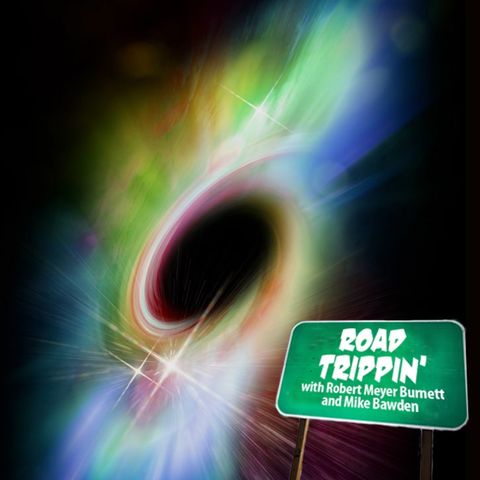The origin of the Post-Geek Singularity and the power of storytelling (#007)

Descarga y escucha en cualquier lugar
Descarga tus episodios favoritos y disfrútalos, ¡dondequiera que estés! Regístrate o inicia sesión ahora para acceder a la escucha sin conexión.
Descripción
There is unquestionable power in storytelling. A well-told story engages and informs an audience. It provides motivation to those who wish to be motivated. It answers the question on so...
mostra másIt answers the question on so many minds: The "Why?" ... even if the answer is "Why Not?"
And so today's podcast is a story in its own right. Although my intentions might have been to tap into Rob's wealth of knowledge about how the movie business works and why Michael Bay's movie, AMBULANCE, has failed so spectacularly at the box office when "Bay-hem" was, up until this past weekend, almost a sure-fire money-maker on opening weekend.
Instead, Rob led things off with a memory of how and why he coined the terms "Post-Geek Singularity" and "Imagination Connoisseur" to replace more derogatory terms like "geek" and "nerd." Since coming up with those new proper nouns - words we use rather prolifically on our website (postgeeksingularity.com) and social media - they've started to take on a life of their own.
And like most catchphrases, the deeper we look into what they could possibly mean, the more meaning we actually find inside. It's ironic, really. As we discussed it in today's podcast, there really is a kind of "event horizon" for the Post-Geek Singularity: the opening of STAR WARS in late May of 1979.
From that point forward, nothing was ever the same again. Certainly not sci-fi or fantasy. But even in a broader sense, there was a fundamental change in the way we started to experience motion picture entertainment and (in keeping with the "singularity" theme) the way every experience started to be reshaped and reformed according to the media zeitgeist.
If it wasn't STAR WARS, it was ALIEN or THE TERMINATOR or some other action-adventure-fantasy story sucking all the air out of the theaters and shopping malls across America.
How has all that changed us and the way we tell our own stories? In one way, major tentpole blockbusters gave us all a shared experience we could talk about. But as that shared experience aged and technology continued to advance, we started to see a loss of individuality. Blockbusters continued to grow and become more important to exhibitors and retailers. Star Wars proved that you could make more money selling toys about your movie than you could with the movie, itself.
The lesson learned, or so it seemed, was that it was better to focus a studio's attention and resources on just a few, HUGE blockbusters and not on the creation and distribution of dozens of smaller pictures.
Have we paid a price? Unquestionably.
Rob and I talk about how people can't seem to form relationships anymore. They don't talk or communicate unless it's online and through an avatar. And maybe most importantly, they don't empathize anymore.
Is storytelling (or the lack thereof) to blame for this? No. Not solely. Technology and our unbridled use of it is a big part of the problem. But until we learn how to engage as real people on an individual basis (one-to-one), the situation won't get better. Only worse.
What will it take?
Well, let me tell you a story ...
I invite you to listen in on my weekday conversations with my friend and business partner, Robert Meyer Burnett, as we talk about the things we love: great movies, inspiring television programming, nostalgic genre entertainment, and pop culture.
- Mike Bawden, co-host of the ROADTRIPPIN' Podcast
This is an original show produced for the PGS podcast network and was recorded on April 13, 2022.
Información
| Autor | ICU LLC |
| Organización | Imagination Connoisseurs Unlimited, LLC |
| Página web | - |
| Etiquetas |
Copyright 2024 - Spreaker Inc. an iHeartMedia Company

Comentarios